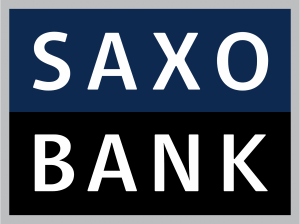Danish multi-asset brokerage, Saxo Bank has reported an increase in trading activities in April 2024. The bank’s clients traded an average daily volume (ADV) of $4.5 billion, up 9.8% from the previous month, but was down 12% year-over-year from $5.1 billion in April 2023.

Saxo Bank’s FX clients traded worth $4.1 billion daily in March, the lowest turnover since December 2021.
The Danish multi-asset brokerage reported its total monthly FX volume for April 2024 at $99.3 billion, which is up 7.6 percent from $92.4 billion a month ago. However, this figure corresponds to a yearly decrease of 3 percent compared to $103 billion in 2023.
In terms of its commodities business, Saxo Bank performance was stronger in this segment after yielding an ADV of $3.2 billion last month, up from the $2.1 billion reported in March.
Overall, Saxo Bank’s average daily volume across all asset classes was upbeat during April 2024, reported at $21.9 billion per day, up from $18.1 billion the month prior.
Saxo Markets UK Ltd., the UK subsidiary of Saxo Bank A/S, parted ways earlier this year with its long-serving chief executive Charlie White-Thomson.
White-Thomson has nearly three decades of experience in financial services, including both developed and emerging equity markets. Having served in several senior management positions, he joined the Danish forex bank in 2019 as non-executive director to its board. During a five-year tenure, he held key roles, culminating with the position of Saxo Markets UK’s CEO in October 2020.
Last year, the Danish Financial Supervisory Authority (FSA) designated Saxo Bank as a Systemically Important Financial Institution (SIFI), recognizing its crucial role in the financial system. This notable classification also places Saxo Bank in the league of banks, insurance companies, and other financial institutions whose potential failure poses a substantial risk of triggering a widespread financial crisis.
Widely recognized as “too big to fail,” SIFIs hold a critical position within the financial landscape, warranting heightened regulatory oversight and safeguards to ensure their stability and prevent catastrophic consequences.



